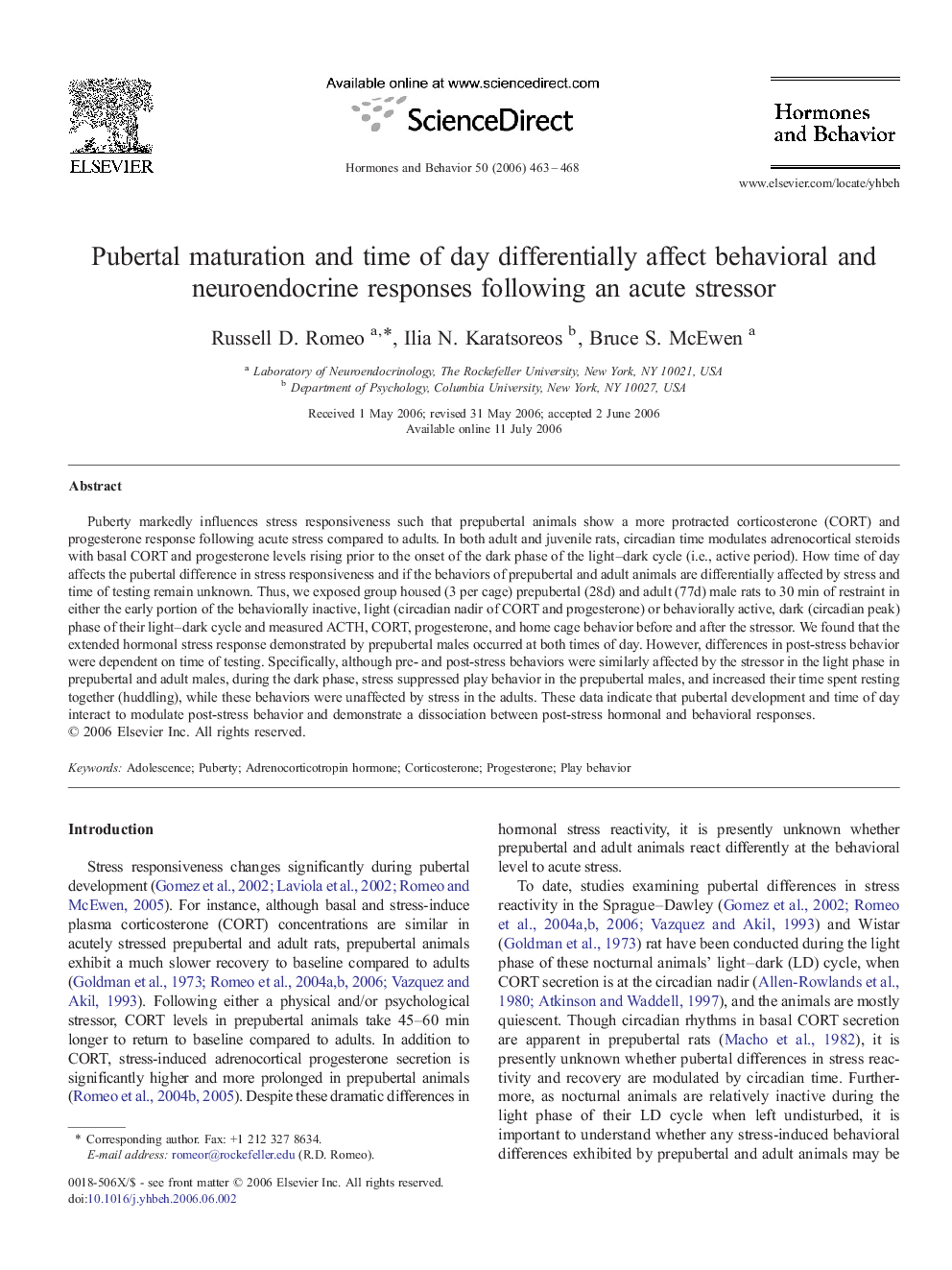| Article ID | Journal | Published Year | Pages | File Type |
|---|---|---|---|---|
| 323906 | Hormones and Behavior | 2006 | 6 Pages |
Puberty markedly influences stress responsiveness such that prepubertal animals show a more protracted corticosterone (CORT) and progesterone response following acute stress compared to adults. In both adult and juvenile rats, circadian time modulates adrenocortical steroids with basal CORT and progesterone levels rising prior to the onset of the dark phase of the light–dark cycle (i.e., active period). How time of day affects the pubertal difference in stress responsiveness and if the behaviors of prepubertal and adult animals are differentially affected by stress and time of testing remain unknown. Thus, we exposed group housed (3 per cage) prepubertal (28d) and adult (77d) male rats to 30 min of restraint in either the early portion of the behaviorally inactive, light (circadian nadir of CORT and progesterone) or behaviorally active, dark (circadian peak) phase of their light–dark cycle and measured ACTH, CORT, progesterone, and home cage behavior before and after the stressor. We found that the extended hormonal stress response demonstrated by prepubertal males occurred at both times of day. However, differences in post-stress behavior were dependent on time of testing. Specifically, although pre- and post-stress behaviors were similarly affected by the stressor in the light phase in prepubertal and adult males, during the dark phase, stress suppressed play behavior in the prepubertal males, and increased their time spent resting together (huddling), while these behaviors were unaffected by stress in the adults. These data indicate that pubertal development and time of day interact to modulate post-stress behavior and demonstrate a dissociation between post-stress hormonal and behavioral responses.
